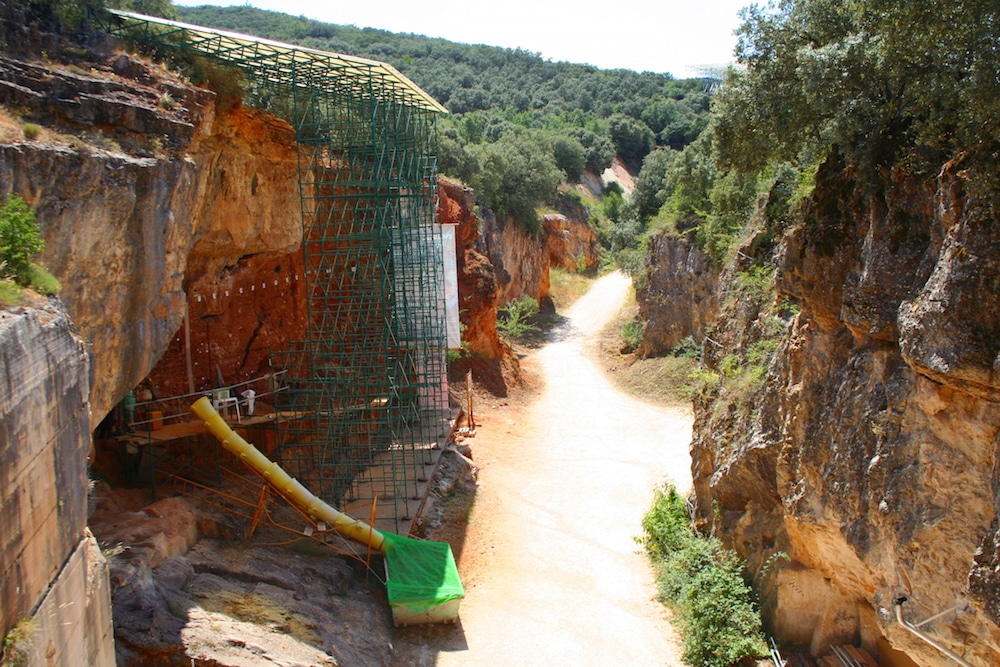This article was translated by John R. Bopp
Note: a few days after writing this, we couldn’t resist bringing back a story on another article in our blog, about the origin of the Basques:
“The truth is that we didn’t need any references to our ancestors, because, as the French Basque priest Pierre d’Iharce de Bidassouet joked, “‘Know that we Rohans date from the 12th Century,’ a French nobleman once said. The Basque villager responded, ‘Well, we Basques don’t date.’”
—————————-
Many times, we’ve gotten the impression that there’s a basic objective that guides the Spanish media and, so it seems, part of the scientific community with that “sense of belonging”. We refer, as you’ve undoubtedly guessed, to fighting tooth and nail any element that might determine an element that differentiates the Basques from the rest of the population of the Kingdom of Spain.
Today we are again witness to one of those campaigns. A group of researchers have published in the PNAS “Proceedings of the National Academy of Sciences” a study that discussed a series of hypotheses related to possible similarities in genetic features between some human remains found in Atapuerca dated to 5,000 years ago, and that of “modern Basques”. This study put forward the idea that the Basques are a consequence of the mix between those primitive inhabitants of the north of the peninsula, hunter-gatherers, and of the first wave of farmers that reached the Iberian peninsula. To explain the genetic differences between today’s Basques and the rest of the inhabitants of the Iberian Peninsula, they offer the possibility that if that emigrant wave did settle in the Basques’ current territory, the other emigrant waves that reached the Peninsula did not enter that territory, for whatever reason.
The published study is full of terms that are normal for a work of that sort, terms like “possible interpretation” or “the data suggest”. This is definitely a theory set forth as a line of work that has the same value, we think, as other works that have come to very different conclusions. Such works include the Genographic Project; or the theory that proto-Basques colonized the island of Great Britain 15,000 years ago, or the studies that affirm the existence of clear signs of the “Basque colonization” of Europe after the last ice age, or a very specific one from a group of BIOMIC researchers at the University of the Basque Country, who showed a direct genetic relationship between the current inhabitants of the Baztan valley and human remains found in a cave of that valley dated to be 15,000 years old.
This published work develops a theory defended by prestigious scientists and based on a series of studies, a theory that opens new paths of research and which should be contrasted with, for example, those of the BIOMIC research group at the University of the Basque Country (UPV). Unfortunately, the theory becomes an indisputable reality when it leaves the scientific realm and enters the mass media.
We imagine the cause of this focus must have been the press release sent out to inform the media of the publication of this study. But what the study claims and what the media claim the study claims are abysmally distant. It’s a clear example of how science jumps to populism in a simple fatal jump without a net. By the way, in this fatal jump, the only thing that dies is scientific rigor.
We find statements attributed to the scientists in charge of the study in Spanish newspapers:
“Basques descend from the first farmers that we studied in Atapuerca, and from other regions, as shown by a practically simultaneous study based on one individual in Catalonia,” details researcher Cristina Valdiosera, of the UCM-ISCII Mixed Group for Research on Evolution and Human Behavior. “I don’t know if they were already in what is now considered the Basque Country, but we can say that they’ve been in Atapuerca since at least 5,000 years ago,” explained the researcher, co-author of the study, which is published today in the American journal ‘PNAS’”.
“It’s interesting since the Basques have always been considered a singularity in Europe not only for their unique language–which seems to have no relationship with Indo-European ones–but also for their genetics. It’s been suggested that they represent a continuity of more than 10,000 years, and that they are descendent from the Paleolithic inhabitants of the area. Now we’ve seen that this is clearly false, and that they can’t be considered that old.” (Juan Luis Arsuaga, coauthor of the work)
Then we reach the pathetic stage: “New studies show a less desireable reality from the nationalist point of view,” claims the journalist who wrote the article in El País.
Firstly, what do those who lived and where they came from 5,000 years ago have to do with the existence of Basques today? Well, in any case, if a differentiated history of 5,000 years is a “hit” against Basque nationalism, what can we say about the supposed nations that are only based on war and conquest? What can we say of the idea of a nation whose real and politically homogeneous structure dates only from 1812? Some nationalisms have their own DNA with 15,000 (or 5,000) years of history, while others have Santiago the Moor Killer or Viriato, the Lusitanian leader who fought for the independence of Spain.
But going back to the study, we find that, curiously, the authors of this genetic research article, also delve into the explanation of the origin of the Basque language, based on criteria which are at least highly debatable.
Anyway, this is not new: we went through this is iin 2010 with another study that “explained” that Basque are just like the rest of the Spanish population. This study had a huge media impact, because in the end, the media (and apparently, some scientists as well) follow the ideology they follow. This is why they tell us things a certain way, or simply don’t tell us them.
We’ll leave you with the work published in PNAS, so our readers can judge for themselves. Also, for those who like genetics, we have a wide range of articles on our blog, one of which is, by the way, our most read entry ever.
PNAS – 7/9/2015 -USA
Ancient genomes link early farmers from Atapuerca in Spain to modern-day Basques
The transition from a foraging subsistence strategy to a sedentary farming society is arguably the greatest innovation in human history. Some modern-day groups—specifically the Basques—have been argued to be a remnant population that connect back to the Paleolithic. We present, to our knowledge, the first genome-wide sequence data from eight individuals associated with archaeological remains from farming cultures in the El Portalón cave (Atapuerca, Spain). These individuals emerged from the same group of people as other Early European farmers, and they mixed with local hunter–gatherers on their way to Iberia. The El Portalón individuals showed the greatest genetic affinity to Basques, which suggests that Basques and their language may be linked with the spread of agriculture across Europe.
(Continue) (Automatic translation)
Direct link to the study’s PDF file
Last Updated on Dec 20, 2020 by About Basque Country





